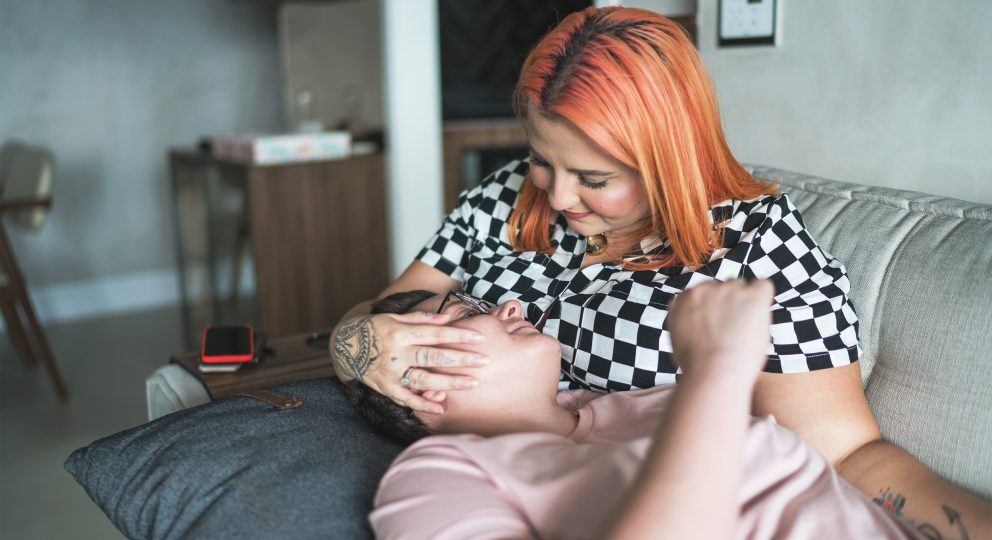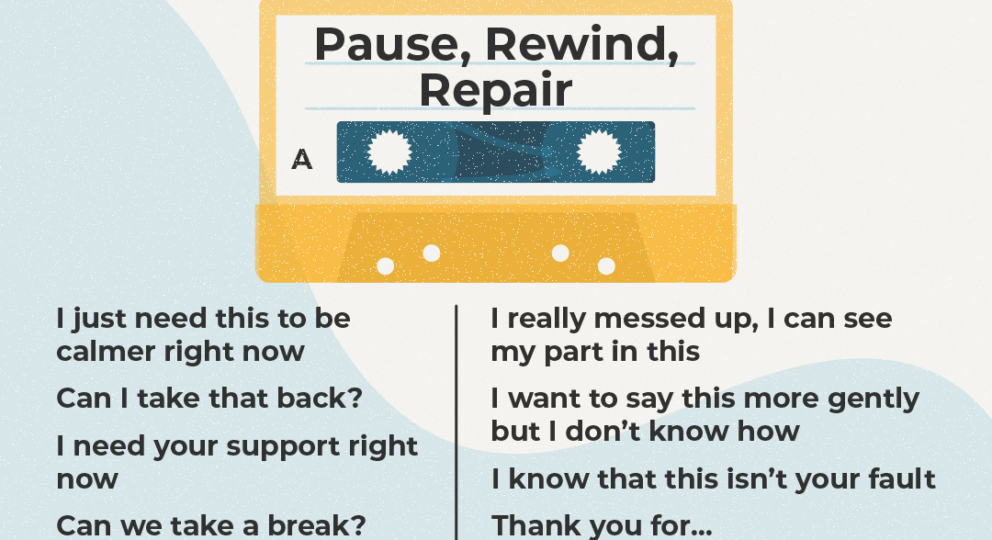Approximately 1.5 billion people worldwide suffer from chronic pain. Despite how widespread these struggles are, many people still face judgment and disbelief from others, which only intensifies their physical and emotional pain.
Why are people so quick to judge?
Much like mental health, the impacts of “invisible” pain conditions can be hard to spot and far more complicated than the traditional medical model can treat. It’s so hard to see someone we care about suffering. This can trigger anxiety and blame. However, blaming patients and partners for their painful conditions causes emotional harm and can exacerbate symptoms.
Sometimes it’s mindlessness or forgetfulness that causes harm—like when my teenage son questioned why I asked for help after falling and pinching a nerve in my back. He honestly forgot these simple tasks triggered pain for me because to him I looked fine.
It can be hard being the partner or caregiver of someone who sometimes can’t “lift their weight” due to physical or mental health struggles. You have a right to feel frustrated and overwhelmed at times. In this state, it is so easy to lash out at your loved one with the Four Horsemen of the Apocalypse as Dr. John Gottman describes these four negative reactions: defensiveness, criticizing, contempt, and stonewalling. But not only are these predictors of relationship breakdown but contempt, in particular, can further compromise an already fragile immune system. From a polyvagal perspective, this is because the perception of safety is essential, not just for social wellbeing but for optimal health.
How do we get back on track?
To preserve the health of the relationship and each other, it is so important to make repairs and come together to grieve, realizing there is no one to blame. The Gottmans have created some great resources for making effective repairs. As people move through the stages of grief, there is acceptance. From here we can find the possible opportunities or lessons within these crises and clearly identify what additional support to adjust to this new normal.
What really helps?
Trauma-informed doctors and specialists can acknowledge the connection between trauma and pain. They also reduce the risk of causing further harm.
Having a supportive partner, friends, or family members can make all the difference in the world. All the people I talked to unanimously agreed what was most helpful was knowing their partners took their conditions seriously and supported them by advocating for proper medical care. Turning towards them by taking them to the hospital or to doctor appointments further helped to strengthen the relationship. Having someone there to ask questions and listen carefully to instructions at a time when people feel overwhelmed by the pain and/or the uncertainty of their prognosis decreases a sense of isolation and sets patients up for success at home.
While the current pandemic may make accompaniments harder, you can still offer support by helping your partner make a list of questions for the doctor and waiting in the parking lot while they are in appointments.
Another powerful buffer for relationships is Gottman’s “Culture of Appreciation.” Recognizing the effort and the gift of your partner’s or loved one’s presence rather than what they do goes a long way to maintaining love and mutual appreciation as well as preserving a chronic pain sufferer’s self-worth.
Many of the people I spoke with talked about the shame they felt regarding changes to their bodies such as weight gain, rashes, swelling, or physical deformities. Sharing laughs and being told they were beautiful by their partners helped to ease this shame and distract them from the pain.
A final word
Nothing good comes from minimizing someone’s pain and pushing people with chronic pain and/or physical illness to do more. As Trena Seymour describes in her article, “we end up paying for tomorrow for what we do today.” It often leads to debilitating setbacks and anticipatory anxiety about everyday tasks. This can trigger phobias and shrink a person’s world.
It’s so important if you have chronic pain to learn to listen to your body and honor your limits. A helpful book is Dr. Gabor Mate’s “When the Body Says No: The Stress Disease Connection.” You alone are the expert on you. Unwanted medical advice is unhelpful and can even be dangerous.
Despite what others may say or do, always remember, this is not your fault. This is only “for right now.” Tomorrow could be a better day. Remission or a complete recovery is possible, but only if we are gentle with ourselves today, listen to our body’s wisdom, and work to heal any underlying trauma. Emotion Freedom Technique (tapping) and Internal Family Systems Therapy can bring results in the reduction of chronic pain.
Admitting our limits doesn’t mean we’re failing. It means we’ve fallen into grace. This is so much easier to do with a supportive community validating our experiences and providing concrete help to ease the burden.
Do you know What to Do After a Fight? The Gottmans will guide you through the science behind conflict and what you can do to course-correct. Sign up for their all-new program What to Do After a Fight today and make the necessary repairs to keep your relationship going strong.








